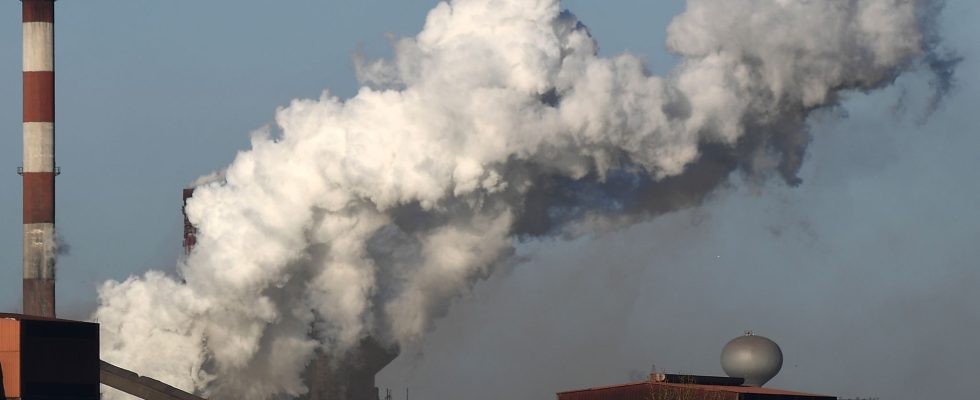One billion euros released, out of the five billion planned. This is, according to AFP, the amount that Elisabeth Borne will announce this Friday, June 23 in order to support the decarbonization of the 50 French industrial sites that emit the most greenhouse gases responsible for global warming.
Alongside several ministers, the Prime Minister receives representatives of these 50 sites this Friday afternoon, at the Bourget air show, as part of a National Industry Council (CNI). This body brings together the bosses and unions of the country’s 19 main industrial sectors (aeronautics, agri-food, automotive, etc.) and representatives of the State.
The 50 sites targeted (steel and chemical plants, cement manufacturers or fertilizer manufacturers in particular) represent 30,000 jobs and half of the emissions from industry, which account for 18% of the country’s emissions. These manufacturers will present their decarbonization roadmaps at the CNI, in which they commit to reducing their CO2 emissions by 45% by 2030, and by 80% by 2050.
“The decarbonization of industry is budget efficient”
The decarbonization bill for French industry is estimated at 50 billion euros, according to the document sent to the press presenting the CNI dedicated to ecological planning. Of this fifty billion euros for the whole industry by 2050, to be financed by companies and public authorities, 30 billion concern the 50 most emitting sites in France, as related The echoes.
“These are initial estimates that will have to be refined, but it must be borne in mind that the decarbonization of industry is budget-efficient,” indicates with Echoes Industry Minister Roland Lescure. “Overall, we estimate the cost of decarbonizing industry at between 30 and 50 euros per ton avoided. This is a reasonable cost, four to six times lower than for the energy renovation of housing, for example”, explains- he.
For Matignon, the trajectories presented represent “very good news” in view of the objective that France has set itself to reduce its carbon emissions by 50% by 2030. The sectors with the highest CO2 emissions are the steel industry. , cement and fertilizers. Geographically, the two areas with the highest carbon emissions are the north of France around Dunkirk, with 12 million tonnes of CO2 emitted, followed by the Marseille-Fos basin, with just over 10 million.
A decarbonization pact offered to industrialists
Roland Lescure reassures those who are worried about seeing public money spent without guarantee on an effective reduction in emissions. “We will follow the commitments closely, and there will be refund clauses if the objectives are not met,” he says. to Echoes.
In a study to be published on Monday June 26, notes the economic daily, the NGO Réseau Action Climat shows that the manufacturers concerned have received several tens of billions of euros from France and Europe for twenty years (free CO2 quotas , heat funds, etc.) with no dramatic effect on their emissions.
Emmanuel Macron had proposed on November 8, 2022 a decarbonization pact to the industrialists who emit the most CO2, promising a doubling of public aid to 10 billion euros in exchange for a doubling of their effort in this area. In this respect, Matignon specified that it was a question of proceeding by “order”: first to engage the first means before engaging additional means. “When we have reached the end of the consumption” of the five billion, “the questions will arise”.
On Tuesday, Eric Lombard, managing director of the Caisse des dépôts (CDC), for his part announced a total financing of 100 billion euros in favor of “ecological transformation” over the next five years, an effort by the whole of the band. This sum will, for example, be allocated to projects linked to the development of battery factories, a “good example of political and economic voluntarism” according to the leader.
Eric Lombard linked this ambitious investment and financing policy to the report by Jean Pisani-Ferry and Selma Mahfouz, commissioned by Prime Minister Elisabeth Borne and presented on May 22.
The boss of the CDC, the financial arm of the State, also stressed that these 100 billion euros represented “a third” of the needs expressed by the Pisani-Ferry Mahfouz report, which estimates that decarbonization will call for additional investment of 66 billion euros per year.
